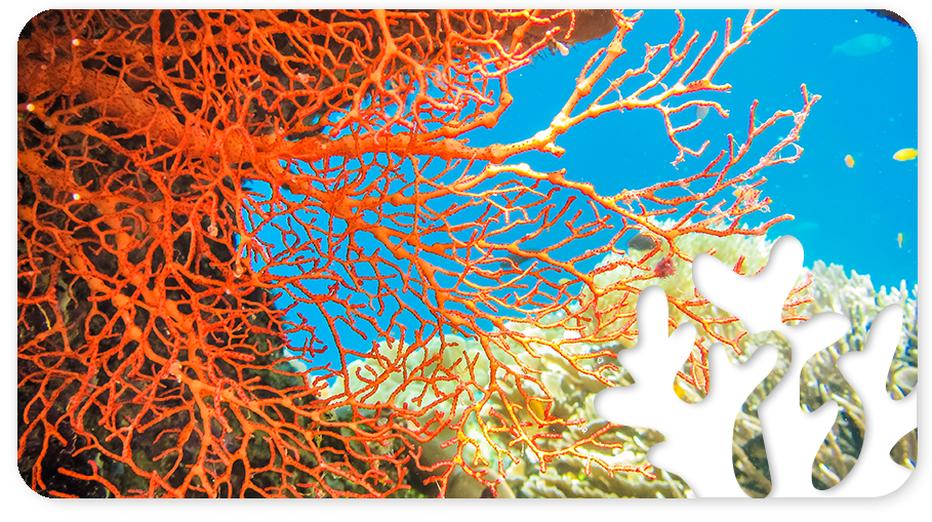|
Coral reefs are some of the most diverse and productive ecosystems on the planet. Despite covering less than 1% of the ocean floor, coral reefs are home to a quarter of all marine species, making them a crucial component of the global ecosystem. However, due to factors such as climate change, overfishing, and pollution, coral reefs are facing severe threats. In this blog post, we will discuss the ecological benefits of healthy coral reefs and why it's important to protect them. Biodiversity
Coral reefs are one of the most biodiverse ecosystems on the planet, providing a home to over 25% of all marine species. They are often called the "rainforests of the sea" due to their rich biodiversity and intricate web of interdependent relationships between species. Coral reefs support a diverse array of marine life, including fish, crustaceans, mollusks, and other invertebrates, which rely on the reef for food, shelter, and protection from predators. The intricate structures of the reefs themselves provide an ideal habitat for a wide variety of organisms, from tiny plankton to large predators like sharks and turtles. Healthy coral reefs provide a habitat for over 4,000 species of fish, 800 species of reef-building corals, and countless other species. The loss of coral reefs would have a significant impact on the biodiversity of the ocean, which could have a ripple effect throughout the food chain. Protection When waves approach a coral reef, they interact with the complex structures and shapes of the coral formations. These structures act as barriers that slow down the speed of the waves and cause them to break up into smaller, less powerful waves. As the waves break over the reef, they lose energy and momentum, reducing their destructive force when they reach the shore. The energy of waves is dissipated through a combination of processes that occur when they encounter coral reefs:
Together, these processes work to reduce the energy of waves and protect shorelines from erosion and damage. Coral reefs are particularly effective in protecting low-lying islands and coasts, where waves can cause significant damage during storms and high tides. Carbon Sequestration Coral reef carbon sequestration refers to the process by which carbon dioxide (CO2) is removed from the atmosphere and stored in coral reefs. Coral reefs absorb CO2 from seawater through calcification, where CO2 reacts with calcium ions in the seawater to form calcium carbonate, which is then used by coral polyps to build their skeletons. Coral reefs also sequester carbon through the process of photosynthesis, where algae living on the reefs use CO2 and sunlight to produce energy and oxygen. Coral reefs are highly efficient at carbon sequestration, making them important in mitigating climate change. Fisheries Coral reefs are important for the fishing industry in a variety of ways. They provide habitats for many fish species, as well as shelter and protection from predators. Coral reefs also serve as breeding and nursery grounds for fish and other marine organisms, contributing to the overall health and abundance of fish populations. Additionally, coral reefs support a wide range of marine biodiversity, including species that are important for commercial fishing. Overall, coral reefs are crucial for sustaining healthy fish populations and maintaining the productivity of the fishing industry. Tourism Coral reefs are a major draw for tourists, generating billions of dollars in revenue each year. Coral reefs are incredibly valuable for the tourism industry, as they offer breathtaking natural beauty, a diverse array of marine life, and opportunities for activities such as snorkeling, diving, and fishing. Many tourists are drawn to destinations with coral reefs, which can generate significant revenue for local economies. The loss of coral reefs could have a significant impact on the tourism industry, which could have knock-on effects on local economies. The Big Picture In conclusion, healthy coral reefs provide a range of ecological benefits that are crucial to the health of the planet. It is essential that we take action to restore and protect coral reefs from the threats they face, such as climate change, overfishing, and pollution. By doing so, we can ensure that these incredible ecosystems continue to thrive and provide benefits for generations to come.
0 Comments
Your comment will be posted after it is approved.
Leave a Reply. |
|


